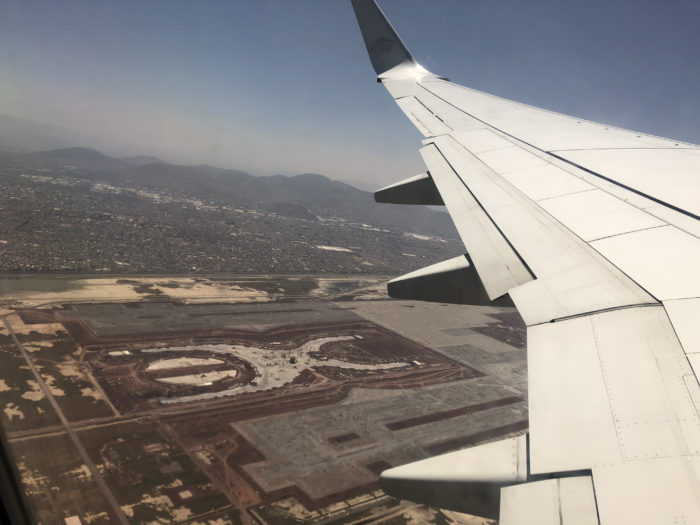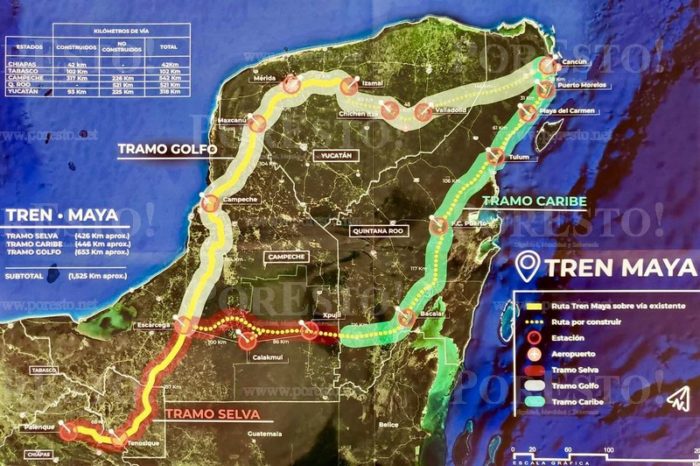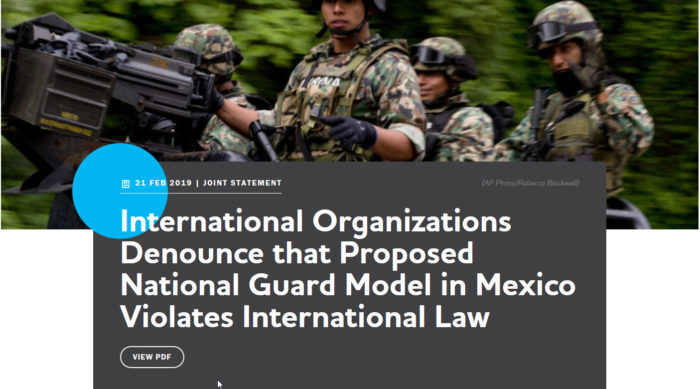Since taking office on 1 December 2018, president Andres Manuel López Obrador (AMLO) has been a man in a hurry. Aged 65, he is said to get up every day at six, hold a daily press conference at seven, and then begin a twelve-hour day. At weekends, he flies off to one of Mexico’s 32 states to examine local projects and talk to the state governors.
He and his MORENA (Movement for National Regeneration) movement have a comfortable majority in the lower house of Congress, but he knows that he has little time if he is to push through all the reforms and projects he has promised in the six years of his period in office.
The people’s vote
Perhaps the most controversial aspect of his first hundred days has been his use of ‘consultas populares’ or referendums. In January, the first of these concerned the construction of a new $13 billion airport for Mexico City. Although work had already begun, AMLO called a halt after the vote showed strong opposition to the project.
photo
 Aerial view of construction at the site of the Mexico City New International Airport (NAICM).
Aerial view of construction at the site of the Mexico City New International Airport (NAICM).
However, local observers pointed out that less than one per cent of those eligible to take part had done so, and that there was no impartial review of the polling.
Next came referendums on a further ten projects AMLO considers a priority. The most divisive of these is the proposed new 1,500 kilometre tourist railway known as the Tren Maya in the Yucatán peninsula (documented for LAB by Elva Narcia).
 Route map of the proposed Tren Maya
Route map of the proposed Tren Maya
Ecologists and many of the Mayan indigenous groups oppose the project, arguing it will cause huge environmental and social damage.
Although voters again backed AMLO’s proposal, there have been numerous voices raised against what is seen as a lack of transparency in the running of the referendum, and suspicions that what is being promoted as giving Mexicans more say is in fact an authoritarian ruse.
This suspicion was reinforced in February 2019 when the president unilaterally decided to cancel a gold mining project at Los Cardones in Baja California, having previously promised a referendum on the matter.
Drugs and Justice
Beyond these immediate priorities, AMLO is facing the massive challenges that his immediate presidential predecessors from the PRI and the PAN failed miserably to resolve.
Felipe Calderón, the PAN president from 2006 to 20l2, decided to declare open war on the drugs gangs. Not trusting local police forces, he brought in the army and the navy to play a public security role. This move was sharply criticised by many who saw it as a threat to individual freedoms, and despite some successes, the violence only grew.
One of AMLO’s first moves in office has been to propose the establishment of a new 250,000 strong National Guard, made up of Army, Navy and federal police personnel.

A consortium of international NGOs led by Washington Office on Latin America (WOLA) issued a strong warning about the proposed new National Guard. This has provoked objections similar to those raised by Calderón’s policy, and the lower house of the Mexican Congress has voted to ensure that a civilian will be in charge of this new force.
Besides the policing issue, AMLO needs to move swiftly to address the inadequacy of the justice system. According to recent calculations, less than three per cent of the perpetrators of violent crimes are actually brought to justice, and many of those are small fry.
Reform of the legal system is a huge task, and although AMLO has declared the ‘corruption should not be a way of life’, it will be hard to root out at all levels.
Addressing Poverty
During his bid to win the presidency at his third attempt, AMLO made many promises to help the estimated 50 million Mexicans living in poverty. In his first three months, he has already doubled pension benefits for many, and is offering government educational grants to more than two million young people.
Measures such as these have made local and international investors very nervous about government spending in general: would he be fiscally responsible, or would he spend money he did not have to keep everyone happy?
The markets appear to have been re-assured that his government’s first budget aims to keep a tight rein on spending, in the hope of producing a budget surplus for 2019.
Many foreign investors though are worried about AMLO’s decision to review all the contracts offered to help open up the huge oil and gas industries to private firms. His predecessor Enrique Peña Nieto planned to trim the state-owned oil firm PEMEX by allowing foreign competition in many areas.
By calling a halt to this process, AMLO has raised fears that he will play the populist card and insist that ‘Mexico’s oil belongs to Mexicans’ and so allow the profligate and often corrupt state concern to continue as before.
The Party Mood Continues
Many of these issues could pose serious problems for AMLO in the future. For the moment though, after three months in office, he still commands an approval rating of more than 70% in opinion polls. The many different factions of his MORENA movement are enjoying their moment in the sun, and continue to back him solidly.
The other main political parties pose no threat to him. The right-wing PAN and the PRI are desperately looking for ways to regain the political initiative, but have lost control not only of the two houses of the Mexican Congress, but power in two-thirds of Mexico’s states.
The left-wing PRD where AMLO began his political career, appears bound for extinction, as the new president has taken many of its members with him.
In his own speech commemorating 100 days in office, AMLO claims he has already carried out 62 of the 100 commitments he made during his election campaign. He promised to continue to tackle pressing social concerns, and vowed ‘We want modernity, but forged from below, and for all.’
This article was first published by Latin American Bureau. For more great articles by LAB experts visit www.lab.org.uk















